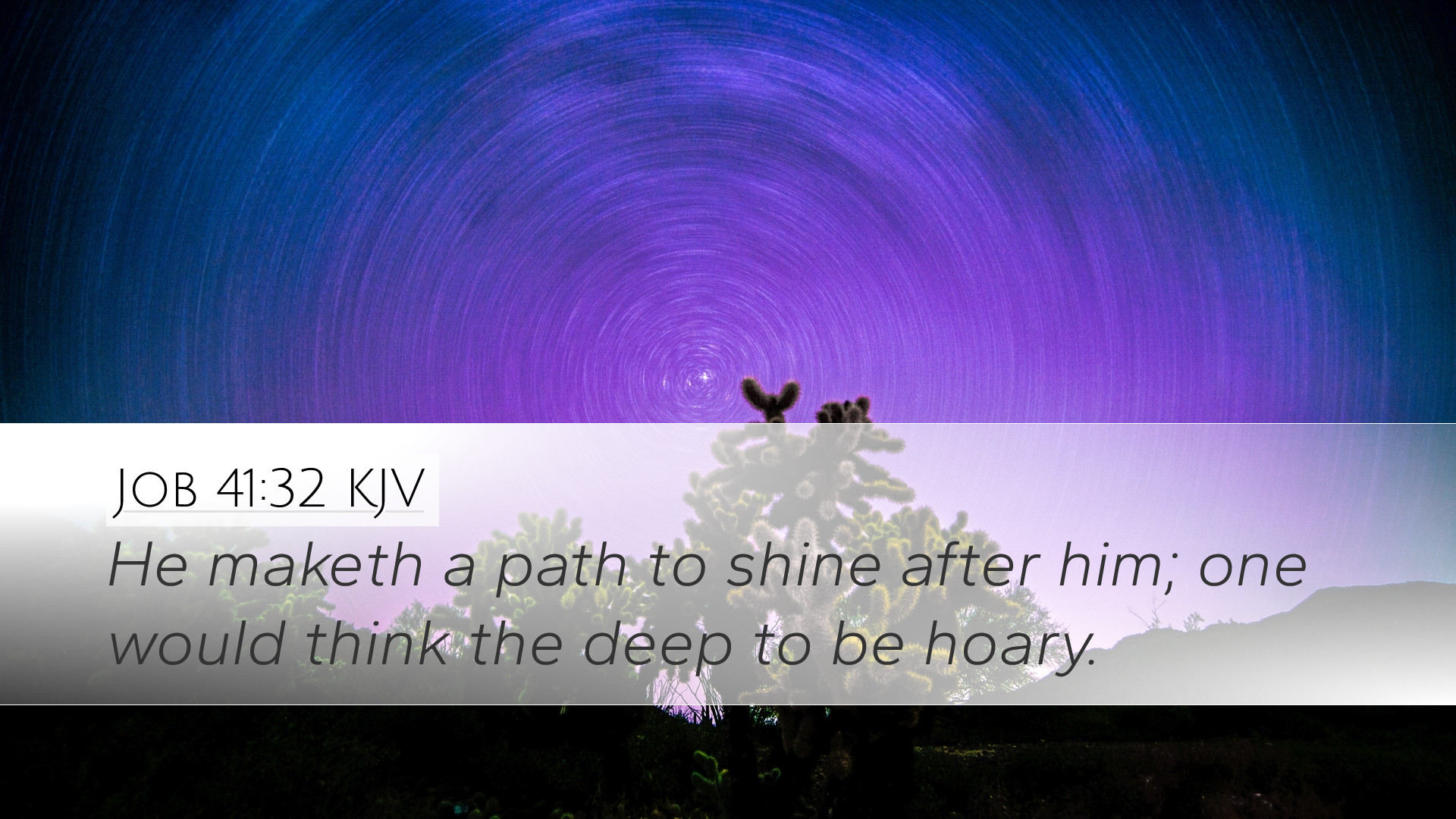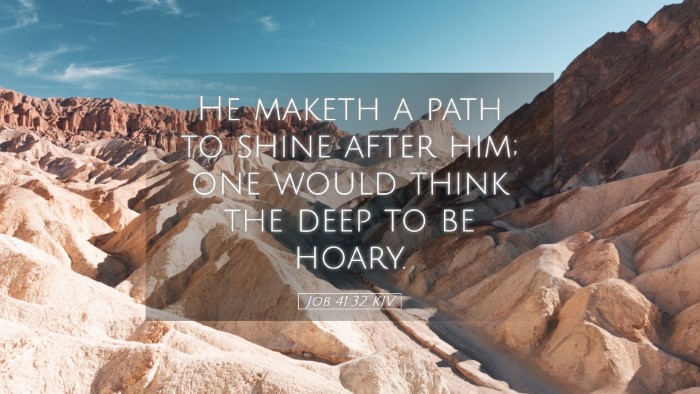Commentary on Job 41:32
Job 41:32 states: "It maketh a path to shine after it; one would think the deep to be hoary." This verse is part of the Lord's majestic discourse on the creature known as Leviathan, which symbolizes formidable strength and unfathomable depths.
Introduction
This verse serves as a grand conclusion to God's illustrations of His own power and sovereignty over creation. In this elaboration, God emphasizes the extraordinary characteristics of Leviathan, ultimately pointing to the invincibility and awe-inspiring nature of His creations.
The Nature of Leviathan
- Symbolism of Leviathan: According to Matthew Henry, Leviathan represents a powerful creature, often interpreted as a dragon or serpent-like figure, embodying chaos and opposition to God's order. It is emblematic of all consumer forces that stand against divine will.
- A Reflection of God's Majesty: Albert Barnes notes that Leviathan provides a demonstration of God's incredible wisdom in creation. The complexity and potency of Leviathan serve to magnify the majesty of the Creator rather than diminish it.
- Implications of the Deep: Adam Clarke draws attention to the deep waters and relates Leviathan to the mysteries and depths of life that humans cannot comprehend, reminding us of our limitations in understanding God’s creation fully.
The Path to Shine
The phrase "maketh a path to shine" suggests that Leviathan has a profound effect on its surroundings. This can imply several layers of meaning:
- Illumination of God’s Power: The "path" represents the visible manifestation of God's power. Just as Leviathan creates a visible trail, God's creation displays His splendor, dominion, and majesty to those who are observant.
- The Reflection of Experience: Henry further explicates that the shining path could symbolize the experiences of individuals who encounter the consequences of divine power within nature. The awe inspired by God is akin to the path of light that leads one to understand their place in His creation.
Emotional and Theological Significance
Through this verse, a theological reflection emerges regarding God's omnipotence. The creature's awe-inspiring presence clarifies the vast chasm between God and man:
- The Call to Humility: The imagery of a creature like Leviathan serves as a profound reminder of God's unmatched power. It challenges humans to approach God with humility, acknowledging that we are but mere subjects of His will.
- The Understanding of Fear: The deep being described as "hoary" symbolizes the ancient and timeless nature of God's creation. This can lead to an understanding of the fear of the Lord as the beginning of wisdom (Psalm 111:10), urging a respectful acknowledgment of divine sovereignty.
Applications for Life and Ministry
Pastors, students, and theologians should consider several applications from Job 41:32:
- Preaching on God's Sovereignty: This verse can inspire sermons focused on the absolute sovereignty of God over creation, reminding congregations of His power and providence in the world around them.
- Teaching on Humility: Educators may use this text to promote humility in faith and study, emphasizing the need to submit to God’s greater wisdom rather than relying solely on human understanding.
- Exploring Creation’s Majesty: Informal Bible studies or discussion groups may benefit from thematic explorations of creation. Engaging with texts like Job 41 can enhance an appreciation for the complexities and wonders of God's handiwork.
Conclusion
Job 41:32 offers a succinct yet profound view into the magnificence of God's creation while emphasizing the importance of recognizing His power and authority. As believers, we are invited to marvel at His creations, approach Him with awe, and embody humility as we navigate the depths of spiritual truth.


